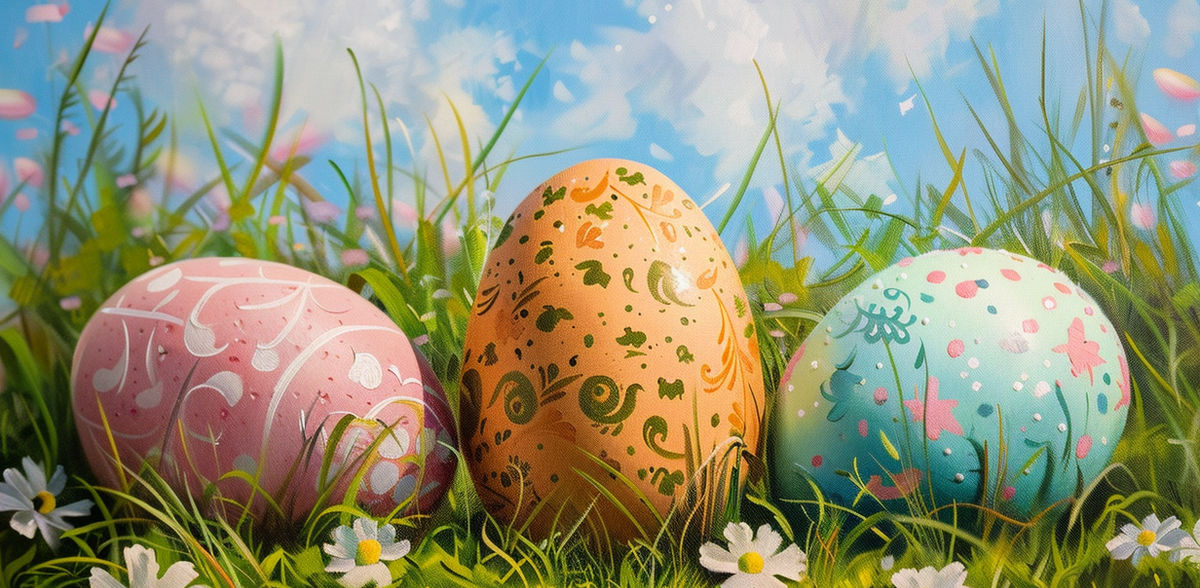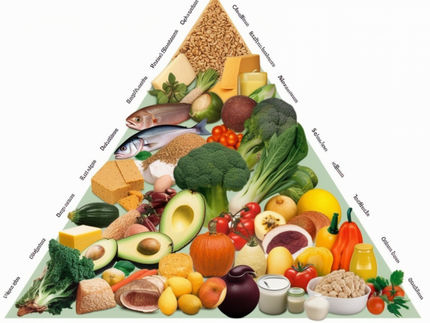Easter egg without cruelty to animals
Also use vegan alternatives
At the end of Lent, all kinds of delicious treats are back on the table, especially brightly colored Easter eggs. Thanks to the obligation to label egg farming methods, which has been in place for 20 years, and private sector initiatives such as dual-purpose hens, consumers can now easily choose eggs from more animal-friendly farming methods and without killing chicks.
Daniela Wannemacher, Team Leader Land Use at the German Federation for the Environment and Nature Conservation (BUND): "Egg labeling is a success story and is an example of how consumers are happy to opt for more animal welfare if they can. Caged eggs are virtually non-existent in retail, and the interest in keeping chickens has also led to breeding efforts for dual-purpose chickens or the Bruderhahn initiative. Higher egg prices also ensure that male chicks are reared and thus prevent them from being killed immediately after hatching. This is encouraging, and it's time to finally start labeling meat as well."
With the introduction of the mandatory number code on eggs, it is now possible to identify which farm the egg comes from. Since then, practically no caged eggs have been sold with the 3 on fresh eggs. Instead, more and more eggs come from organic or free-range farms and are marked with 0 or 1.
Nevertheless, keep an eye out when buying eggs
However, processed products are a pitfall, and this includes boiled and dyed eggs sold at Easter: they do not have to bear a label. Consumers are best advised to look for voluntary labels and seals with which manufacturers provide information on how laying hens are kept. And if you also want to support initiatives for rearing male chicks, it is best to buy eggs from dual-purpose hens.
It's also worth looking at the dyes used for the colorful Easter eggs if you don't want any questionable dyes in your Easter nest. Dyeing with onion skins, turmeric or grass makes the Easter eggs shine in natural colors. However, you can also celebrate with vegan products and without any hen's eggs.
Wannemacher: "A colorful and bright Easter can also be celebrated without chicken eggs and with vegan chocolate eggs instead. Homemade Easter decorations made from natural materials such as hay or sheep's wool and a sprig of yellow-flowering forsythia in the room make Easter even more sustainable. The German Nutrition Society recently adjusted its dietary recommendations and now advises only one egg a week. It's a good thing that cakes and pastries, which most people include on the table at Easter, can also be baked vegan. Many tasty treats can be baked with apple sauce, soy flour or a ready-made egg substitute instead of eggs."
Note: This article has been translated using a computer system without human intervention. LUMITOS offers these automatic translations to present a wider range of current news. Since this article has been translated with automatic translation, it is possible that it contains errors in vocabulary, syntax or grammar. The original article in German can be found here.
Most read news
Other news from the department business & finance

Get the food & beverage industry in your inbox
By submitting this form you agree that LUMITOS AG will send you the newsletter(s) selected above by email. Your data will not be passed on to third parties. Your data will be stored and processed in accordance with our data protection regulations. LUMITOS may contact you by email for the purpose of advertising or market and opinion surveys. You can revoke your consent at any time without giving reasons to LUMITOS AG, Ernst-Augustin-Str. 2, 12489 Berlin, Germany or by e-mail at revoke@lumitos.com with effect for the future. In addition, each email contains a link to unsubscribe from the corresponding newsletter.






























































